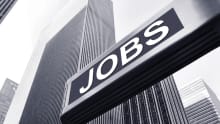Modern-day HRs are custodians of employee experience: Coforge’s Pankaj Khanna

Pankaj Khanna is the EVP & Head of HR-Business Process Solutions at Coforge. As Head of Revenue Assurance, he leads the global staffing functions comprising Workforce Management, Talent Acquisition & Campus Recruitment Programs. The primary objective is to provide talent for global businesses and devise appropriate strategies to ensure Coforge's operating parameters. Pankaj has more than 23 years of experience in HR and revenue and has worked with many global companies like Wipro Technologies.
In conversation with People Matters, he talks about the rising digital skill demand, how technology has become a fundamental medium for people and business strategy and the urgency of future-ready skilling. Here are a few excerpts.
What are some of the emerging digital trends that will impact HR strategy today?
The pandemic outbreak has emphasised the significance of technology for the HR function. As the workforce suddenly shifted to the work-from-home regime, organisations started adopting technological or web-based applications to continue conversations not only on business but around health & safety, employee communication, learning & development, and talent recruitment.
With cloud computing, a recruiter or interviewer can access resumes and other documents from anywhere, enabling a seamless hiring process. With video recording capabilities, interviews can be recorded and saved on the cloud for future reference. Candidates can now experience smoother onboarding from the comfort of their homes. In addition, HR teams can access employee records from anywhere in cloud computing.
At Coforge, we have developed ‘iCATS’, a solution that makes the talent acquisition process seamless and much more efficient. It enables organisations to have uninterrupted engagement with talent during the entire hiring process, identify skill-based training and assessments and help establish the right partner ecosystem for recruiting. The software also uses AL/ML to analyse the talent information and patterns and identify appropriate recruitment marketing initiatives.
With the rapid automation of business and HR functions, what are the current skills in demand?
The pandemic outbreak accelerating the digitalisation journey for organisations has also fueled the demand for relevant and advanced technology skills. The relevant skill sets are industry agnostic; however, from a broader lens, expertise and understanding of technologies like cloud, cybersecurity, data analytics, AI, ML, M2M, AR, VR, etc., are highly in demand.
In fact, in the HR domain, knowledge and understanding of using talent management software help incredibly in performing human resource hiring and recruitment functions. Therefore, those who possess skills in AI-based talent management software and data management are highly in demand.
As per World Economic Forum, more than half of all employees (54%) will require major reskilling by 2022. So now, companies must invest more in enabling their staff to skill and reskill themselves to stay relevant to bridge the gap.
For reskilling and upskilling talent, companies must create tailor-made courses or collaborate with relevant ecosystem players to create the proper learning & development platforms. For example, several online learning platforms have already come forward to help businesses stay ahead of digital disruption by providing courses in data science, machine learning, artificial intelligence (AI), etc. Therefore, by introducing different courses to harness the potential of emerging technologies, organisations can bridge this skill gap, reimagine hiring practices, and build a sustainable talent pipeline.
As businesses embrace hybrid working models, what are some fundamental strategies for building and sustaining these?
In the last two years, the workspace has undergone a massive evolution. As leaders reassess their workspace strategy for the long run, it is imperative to focus on work-life balance and a sustainable working model. The fundamental strategy while building the new work models should be based around three pillars - collaboration, security, and employee well-being.
From a challenge perspective, siloed working practices are perhaps the most significant risk in the hybrid/work from anywhere approach. So, it is critical to have the right collaborative communications tools to bring team members together. Another challenge is data security; organisations can mitigate this risk by introducing the right security solutions, driving awareness programs, and keeping regular checks on the organisation’s cyber security posture.
A sustainable working style must prioritise empowering people to be productive and joyful. While the combination of remote and office work (hybrid work) gives employees more freedom and allows them to achieve that all-important work-life balance has been a talking point in the industry, it is critical to assess whether the system is working properly regularly. Taking feedback sessions, ensuring regular meetups, and upskilling sessions are a few more inevitable factors of a successful workspace strategy.
At Coforge, how are you building the right employee experience with meaningful career growth and development opportunities in the face of digital disruptions?
We are going through a massive skill crisis—the impact is on the IT industry with the talent shortage for specialised digital skills. Cloud computing, cybersecurity, AI, DevOps, and many other essential tech areas are in high demand, but the supply is moderate.
Companies that invest in L&D efforts focusing on a talent’s holistic development are by GenZs and millennials. Therefore, organisations must focus on leading L&D initiatives by creating futuristic, relevant, and innovative courses.
At Coforge, we have several L&D programs that make future-skilling the workforce a board-room plan focusing on the extent to which the current and future needs of the business drive the learning strategy & plans in the organisation. Our learning strategy is integral to business success and executive sponsorship of the organisation's learning plan. We empower employees to steer their learning journeys in line with their individual goals, learning styles and preferences; linked to business imperatives.
What words of advice would you like to share with the HR community for thriving in the future of work?
Modern-day HRs are custodians of employee experience and company culture. Employee engagement, data analytics in the decision-making process, and most notably, contributing to the organisational culture are the latest additions to the role. The workforce has undergone a massive shift, and we are a multi-generational, agile, and resilient workforce. As a result, the HR function will play an increasingly vital role with sustained competition for top talent.
In the post-pandemic new normal, HR professionals will be expected to take on the role of career coaches, helping employees throughout their careers. HR leaders will need a deep understanding of inherent business dynamics to help define career options for an increasingly restless & agile workforce which, as I mentioned earlier, will demand flexibility in everything they do to deliver successfully. In addition, technology adoption in HR processes and engagements will be necessary to ensure a consistent experience for the global workforce.








